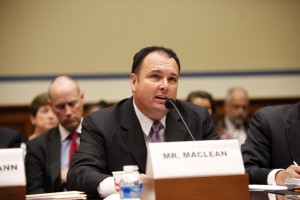In a distressing yet all too familiar case, Walmart has once again found itself under the spotlight for failing to adequately protect its employees from sexual harassment and retaliation. This time, the retail giant has agreed to pay $415,112 to settle a lawsuit involving severe sexual harassment and retaliation at its Lewisburg, West Virginia store. The case highlights a recurring issue within Walmart’s vast network of over 2.1 million employees, where allegations of misconduct by managers have not only been ignored but, in some instances, led to wrongful termination of those who dared to speak out.
The lawsuit brought to light appalling behavior by a former store manager who subjected female employees to unwelcome and offensive sexual behavior. This included crude sexual innuendos, requests for sexual acts in exchange for workplace favors, and an egregious demand that a female employee expose her breasts. Despite receiving multiple complaints, Walmart reportedly failed to act decisively, leading to a female employee being fired after she opposed the harassment and filed a formal complaint.
“Employers have a duty under federal law to take prompt, reasonable action to stop sexual harassment and prevent it from happening again,” said EEOC Philadelphia District Office Regional Attorney Debra M. Lawrence. “Diligent investigations – which include considering relevant past complaints against an alleged harasser, thoroughly interviewing coworkers and others who may know about the work environment, and not demanding supporting witnesses or an admission of wrongdoing as a general prerequisite for taking action – are essential to compliance with that legal duty.”
Such conduct is a clear violation of Title VII of the Civil Rights Act of 1964, which expressly safeguards employees from harassment and discrimination based on sex. Furthermore, it protects them from any form of retaliation for standing up against such inappropriate actions. This isn’t the first instance of Walmart employees resorting to legal action to enforce these rights, and unless large settlements significantly impact Walmart’s $648 billion revenue, it may not be the last.
The settlement agreement requires Walmart to pay monetary relief and adhere to several non-monetary measures aimed at preventing future harassment. This includes barring the rehiring of the implicated manager, mandating specialized training for conducting thorough harassment investigations, and ensuring that investigations are led by personnel with no conflicts of interest.
This case underscores the critical importance of not dismissing inappropriate managerial behavior in the workplace. Every time a perpetrator manages to evade consequences for their illegal actions, it only serves to embolden them, potentially leading to repeated offenses. If you find yourself in a similar situation, do not hesitate to contact a dedicated sexual harassment attorney to protect your rights and seek justice. No one should face such maltreatment in their place of work, and speaking up is a vital step towards making a change.










